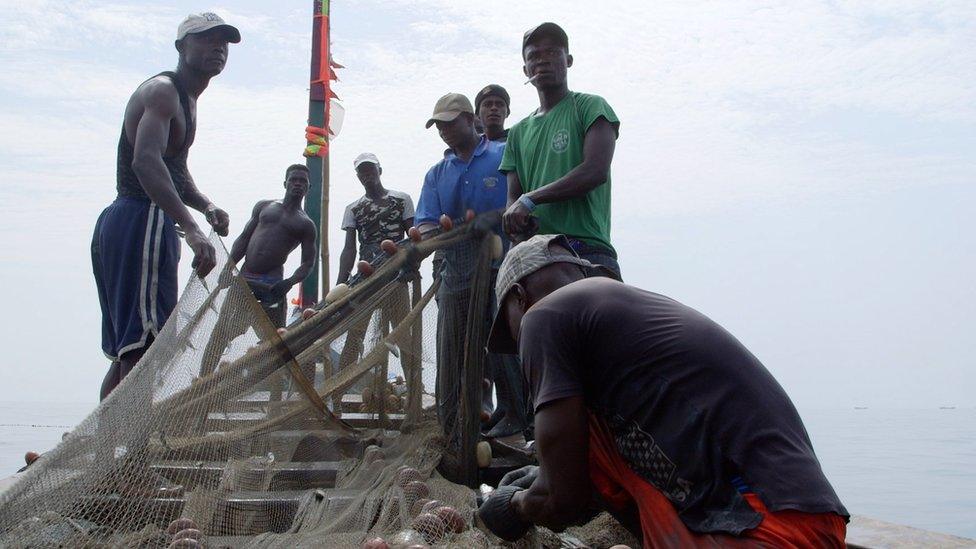Bangladesh bans fishing for 65 days to save fish
- Published
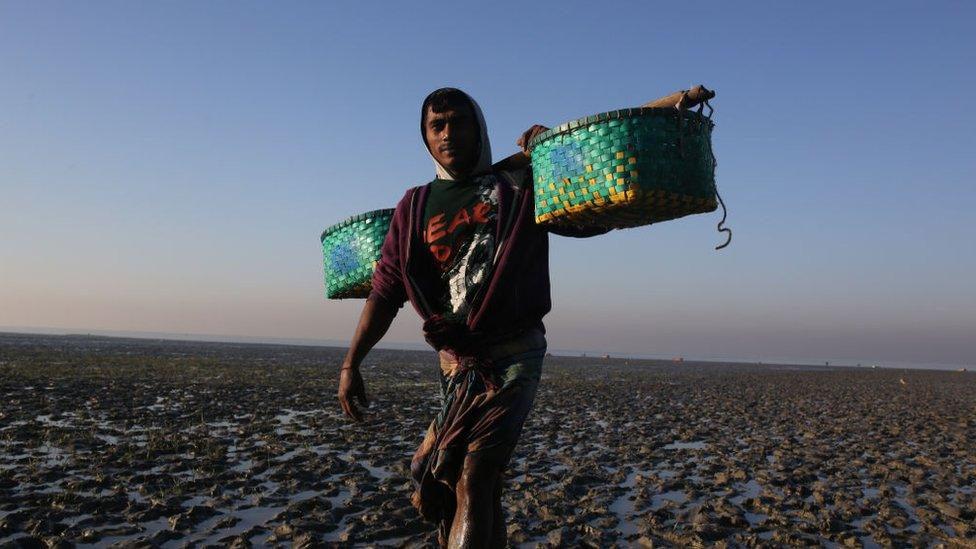
Thousands of fishermen say they will lose their livelihood
Bangladesh has banned fishing off its coast for 65 days to try and boost depleted fish stocks.
The government told the BBC that all types of fishing vessels would be covered by the ban and coast guards would enforce it from Monday.
Thousands of fishermen have planned protests - arguing that they will be left without a source of income.
The ban - lasting from 20 May until 23 July - is timed to occur with the breeding season.
"These resources will deplete one day if we do not use them sustainably," fisheries and livestock minister Ashraf Ali Khan Khasru was quoted as saying by the Dhaka Tribune. "We should let fish grow and breed. Otherwise, we will have to suffer in the future."
The government says the coast guard and navy will enforce the ban in the Bay of Bengal.
There have been short-term bans on commercial fishing in the past but this is the first time that all fishing boats, including local fishermen, have been banned for a lengthy period.
The government says that fishing will now be banned between 20 May and 23 July every year.
Fishing associations have called on the prime minister to re-consider the ban. They are also asking for compensation.
Fish, such as hilsa, forms an important part of local diets and is also processed for export.
Hilsa, a kind of herring, used to be abundant in the waters along the Bay of Bengal but stocks have declined in recent decades due to overfishing. Bangladesh is responsible for about 60% of the total catch globally and the market for hilsa is worth more than $2bn.
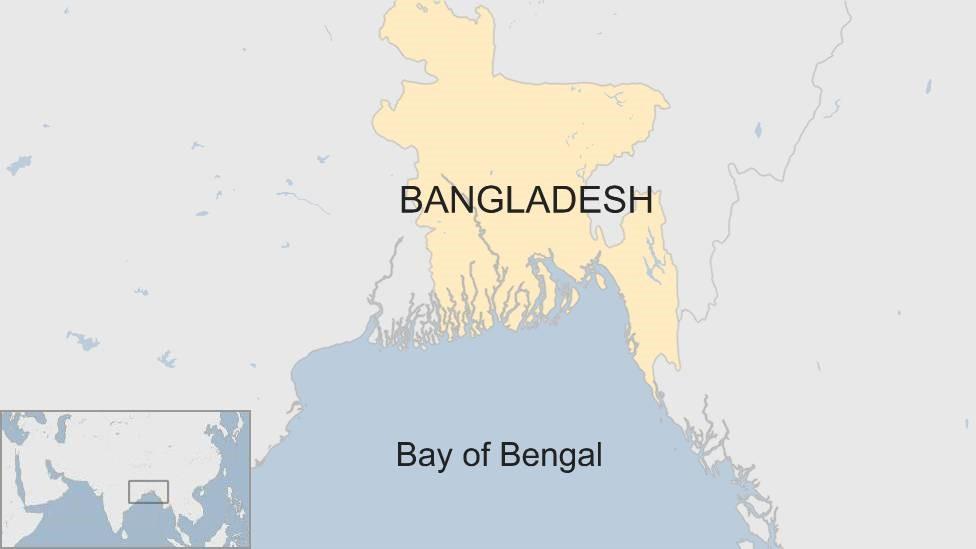
- Published10 May 2017
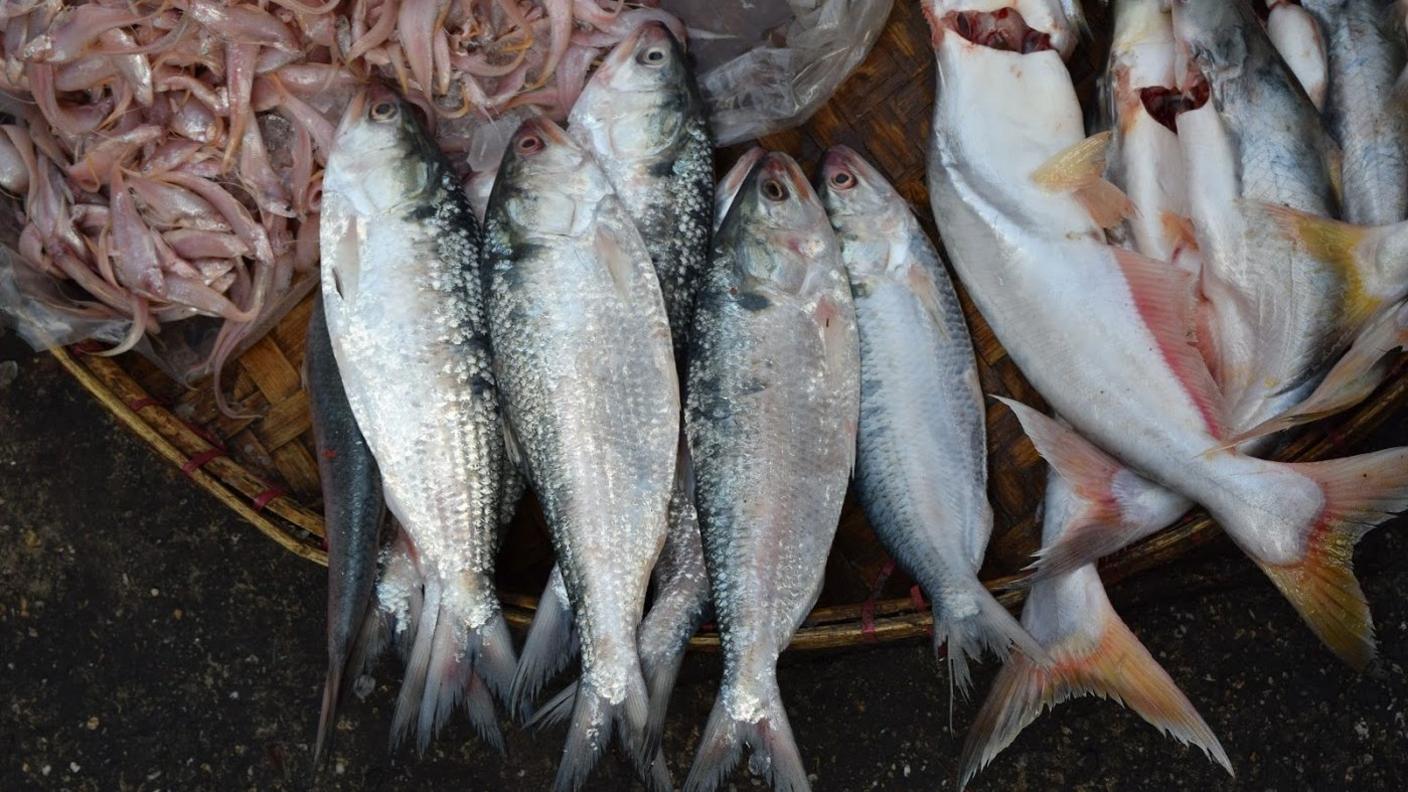
- Published1 November 2018
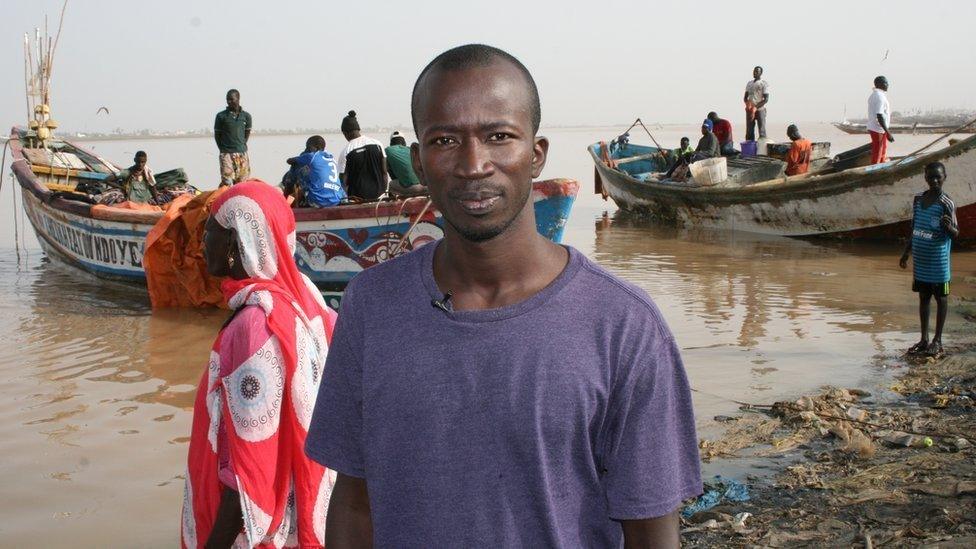
- Published8 April 2019
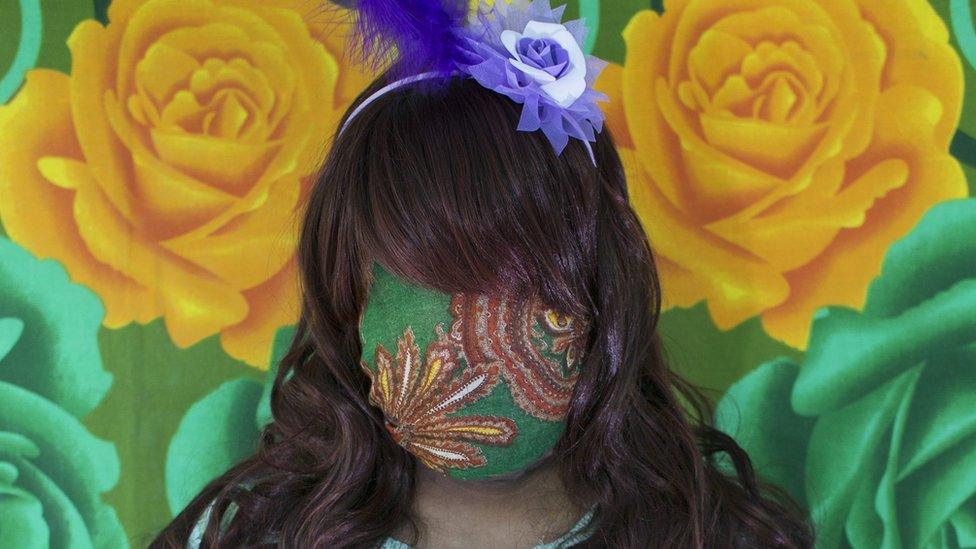
- Published25 March 2019
